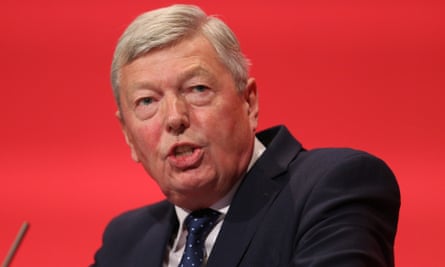Here’s the problem. The cross-party EU Remain campaign launching today did and said all the right things, ticked every box, represented every segment and let no politician speak. Far more women than men led the launch, a fine contrast with the Out campaign’s all-white male frontage. Not Westminster but a freezing hangar in hip Brick Lane was the venue, Britain Stronger in Europe a good title too.
And yet, and yet … the heavy pall of pro-European dullness fell on it. The curse of cross-party movements is that they suck the tribal and ideological life-blood out of politics, leaving them anaemic and toothless. There is something unnatural about the sight of ex-TUC leader Brendan Barber lining up with Lord Stuart Rose of M&S – an arch-Tory and arch-deregulator of working conditions. Many might feel queasy about Caroline Lucas sharing a photo-op with Tory peer Karren Brady.

But the official pro-EU camp has to be this spine-shudderingly awkward union of the opposites. The anti-EU side will suffer from the same perplexing line-crossers. Labour MPs such as Kate Hoey and Kelvin Hopkins joining the Vote Leave campaign give succour to Powellite anti-immigration fanatics, xenophobes and ardent admirers of US Republican extremists.
More political fire may burn within parties battling to persuade their own sides. The most impassioned speeches I heard recently came from the beleaguered pro-EU fringe at the Tory party conference, where gallant Damian Green and Anna Soubry knocked their Europhobes about the small room. Soubry scorched the air with an emotional proclamation of European values that preserve freedom, democracy, equality in race, religion, workers and women’s rights, rescuing us all from the catastrophic conflict of two world wars and centuries of European strife. Trade came only as her after-thought. The in campaign needs more of that Soubry spirit to leaven the narrow pragmatism of shop-keeper bean-counting.
Passion will come too from Yes Labour, the left-facing campaign led by Alan Johnson. He tells me he will not share platforms with Tories, no line-ups with plutocrats who view Europe as no more than a trading post, no photo-calls with Richard Branson. After powerful arm-twisting from the shadow cabinet, Jeremy Corbyn has abandoned his threatened Brexit stance, though it’s unlikely he will ever be a heartfelt EU advocate. What matters was that the Labour conference voted for in, so that Labour’s resources can now flow to the yes Labour campaign: Johnson and Labour’s general secretary met today to allocate staff and cash. Johnson will be storming around the country, rousing up not just Labour but local trade union organisers to fight the Ukip threat.
Will the more reluctant unions come round? “It was useful,” Johnson says, “for Len McCluskey and others to rattle sabres at Cameron to stop him touching EU working rights.” Since then, Cameron’s renegotiation plans have contained no word of weakening the social chapter: he knows winning the referendum needs backing from both Labour and the unions. Johnson will remind Labour people of the rights that came from the EU: maternity and paternity leave, holiday and sick pay, working time and more. If the UK leaves, any Tory government can sweep these away, along with human rights.
Johnson expects senior union leaders to cast off their initial caution. “Look at Unite’s workforce at Airbus, Nissan or Siemens. Leaving the EU would be catastrophic for them. The GMB has an office in Brussels working with European unions.” Johnson says Labour voters are by nature more pro-European: pre-election polling shows 54% of them in favour of staying in. But two issues may sway some on the left towards out. Extreme austerity imposed on Greece may have cast the EU as an oppressor, but Johnson counters that with a question: what help it is to Greece for Britain to leave? “Greece needs a Labour government and more social democrats in power across Europe.”
The Transatlantic Trade and Investment Partnership, TTIP, is another red line for some on the left. Johnson has just visited Brussels, and is convinced there will not be secret trade courts and nor will other countries, with bigger public sectors than ours, allow Europe’s public services to be captured by US companies. Questions that worry the left need answers, so Yes Labour is vital for the Remain campaign.
But alarm is in the air among pro-Europeans of every sort. Long gone are complacent assumptions that the status quo always wins referendums, that fear of the unknown beats novelty or the pay packet always trumps ideals. The wind seems in the sails of the outs, as opinion shifts their way. Try as they might to hide this handicap, today’s launch was a portrait of an establishment arguing for no change. Big business was there, the high street stores, easyJet, the universities and the police. The prospect of Scotland gone or Northern Ireland peace unravelling certainly makes leaving the high-risk choice. What of Russia? Surely self-preservation and economic common sense will see the establishment prevail? Rumour has it John Major will take the campaign helm once Cameron’s negotiations are over. But is the grey man really the answer?
The other side has the great advantage of anti-establishment insurgency in a time of protest: that’s what Boris Johnson weighs up so shamelessly as he dithers over which camp is the winner. “Give us our country back” has a strong pull, and unlike in 1975, most of the press beats the drum for Leave. The outs’ trump card is migration – a word that remained unspoken at the in launch. Cameron can’t renegotiate free movement of people, and millions more may come to Europe before the referendum. It’s obvious to anyone who stops to think that if the UK were to leave, the French would stop holding people back in Calais. But Farage’s “control our borders” line packs more emotional punch.
So does his tweet in riposte to today’s launch: “It is not patriotic to give away control of our country to overseas bureaucrats, it is surrender.” Unbound from red tape, back to our glory days, free to trade and invade on the seven seas – that’s the romantic appeal of the out camp. Now the ins need to summon up an appeal of equal emotional power. Reason alone will not win the day.

